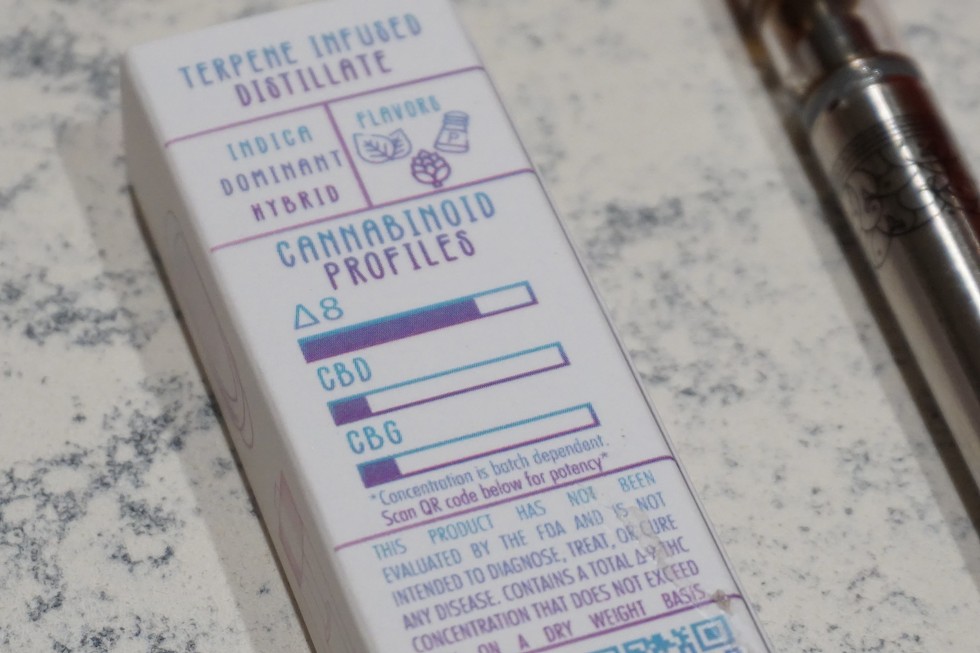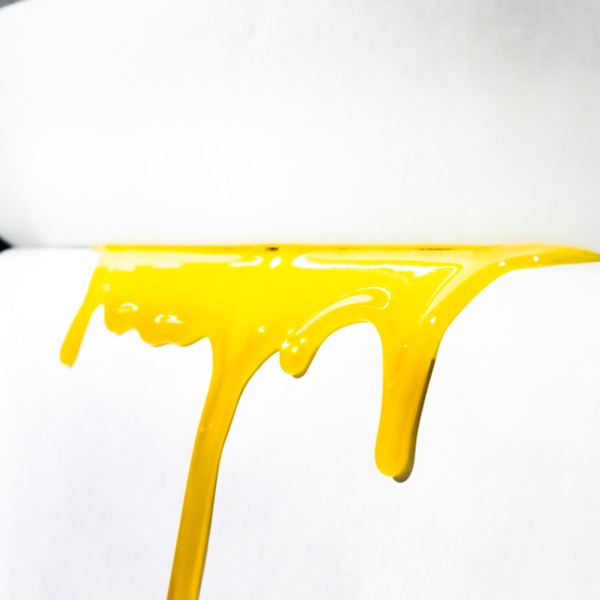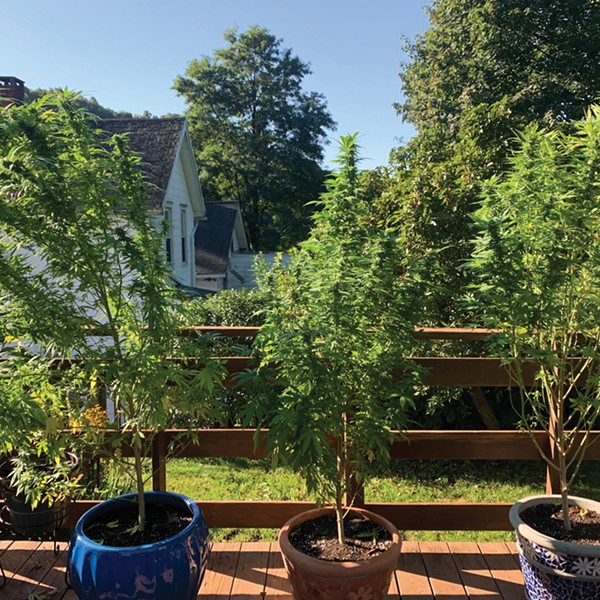There are three main issues that people walk into Matt Tallarico’s CBD shop in Kingston hoping to solve: pain, anxiety, and trouble sleeping.
Tallarico can relate personally with his customers who struggle with anxiety. He’s dealt with it for as long as he can remember, trying every natural remedy imaginable other than CBD, a solution he assumed was trendy but ineffective. Then a friend who works in the industry convinced him to try it a few years ago. Now, Tallarico says it’s the only thing that helps, and he has become a CBD proselytizer himself: last February, he opened Your CBD Store in Kingston.
One of the biggest-selling remedies in the shop for the aforementioned trifecta of issues is delta-8, a cannabinoid some liken to a more gentle version of cannabis (traditional cannabis is scientifically referred to as delta-9). Unlike marijuana, delta-8 is derived from hemp, technically placing it in the CBD category, though it has a psychoactive quality most CBD lacks.
But come July 19, delta-8 may be banned in New York, following other states nationwide who have banned it, citing health concerns and a need for regulation. The ban is being decried by consumers and business owners who rely on delta-8. But some in the cannabis industry have welcomed it, saying the way delta-8 is made and distributed is flawed and dangerous. Without a regulation system, consumers have no way of knowing if the delta-8 they’re taking is safe or not.
“These people who are stomping their feet and saying, ‘This should be legal!’ do not have a sophisticated command of the code of federal regulations,” says Joy Beckerman, founder of Hemp Ace International and a longtime advocate for hemp and cannabis. “If they did, they would realize how ridiculous they sound.”
The Science/The Risk
Delta-8 forms in hemp plants in very small quantities. In order to speed up the process of producing it, some makers skip collecting the naturally created delta-8; instead, they start with CBD and add chemicals to change its structure into delta-8. Via a process called bioaccumulation, cannabis plants absorb the heavy metals and pesticides in the surrounding soil—plus any chemicals added synthetically. If the chemicals are then fully extracted, this can be a safe process. If not, it puts consumers at risk of smoking, eating, or applying a product that still holds some of those heavy metals and pesticides. But given that the market is unregulated, many consumers will never know.
The two ways of producing delta-8—naturally, as Tallarico’s shop does it, and synthetically—result in different products with different impacts on the body.
“Obviously, heavy metals and pesticides are not things we want to consume,” says Stacia Woodcock, pharmacist at Curaleaf, a cannabis company with a dispensary in Newburgh. “And because it’s a plant product, [cannabis] can have molds, funguses, things that naturally grow on plants that could be really unsafe, particularly for people who are immunocompromised or if they’re undergoing cancer treatment. There are certain patient populations that could be much more at risk, but even the general public, you don’t want to be inhaling fungus into your lungs.”
The legal cannabis industry is highly regulated, with requirements for testing and analysis to ensure that the product that hits the market is safe for consumers. For delta-8, however, there is no system to ensure the product is safe.
“This doesn’t really belong in the world of hemp right now; it belongs in a dispensary, or at the very least in a licensed adult-use or medical cannabis framework,” says Beckerman. “But not in the hemp framework, due to all of these concerns. It is very damaging to our already strained relationship with the adult-use and medical cannabis stakeholders.”
The 2018 Farm Bill established a legal difference between hemp and cannabis, removing hemp and its derivatives with extremely low concentrations of delta-9 THC from the list of controlled substances. But the bill did not address delta-8, leaving it in a legal grey area. In August of 2020, the US Drug Enforcement Agency ruled that all synthetically derived substances are Schedule I substances, arguably putting synthetic delta-8 in the same category as marijuana, heroin, LSD and ecstasy. Notably, the DEA’s Interim Rule did not specifically mention delta-8.
Since then, as delta-8 has attracted more attention from cannabis consumers throughout the US, a parallel effort to regulate it has evolved. At least 14 states have banned delta-8. (Florida lawmakers, meanwhile, have moved to establish a legal framework for it.) New York’s ban on the substance will be finalized after public comments are analyzed on July 19. If no changes are necessary, the ban will be effective immediately.
The Ban
Jason Minard, in-house counsel for Hempire State Growers, says a delta-8 ban has been a long time coming. “The writing was on the wall early. While a legal loophole certainly does exist under the 2018 Farm Bill, it was clear to me that that bill never intended to legalize a psychoactive substance. The DEA clarified this position and ultimately the power is vested in the states to ban the product, just as New York did.”
Still, the ban doesn’t firmly answer every question nor does it tighten every loophole, leaving an uncertain future for consumers and sellers alike. One question is whether it bans all delta-8, or just synthetic delta-8. “The regulation is open to interpretation and is technically not a blanket ban on delta-8, but a ban on creating it through synthetic means,” says Minard.
Leading cannabis advocates such as the US Cannabis Council, an organization striving to make cannabis legal, accessible, and equitable, and US Hemp Roundtable, a coalition of dozens of companies committed to ensuring the hemp and CBD industries are safe, have expressed firm agreement with the law, saying it’s urgent that the delta-8 industry is either regulated or shut down.
“Delta-8 is federally illegal and is a safety risk due to it being a psychoactive product that is not being regulated and tested. We are extremely concerned that another vape crisis is coming if the agencies and state lawmakers do nothing,” states “The Unregulated Distribution and Sale Of Consumer Products Marketed As Delta-8 THC” report by the US Cannabis Council, which also notes that the US Hemp Roundtable is in agreement. “Any psychoactive product from hemp or cannabis should be tested, verified safe, and only sold through the regulated marketplace.”
But there is still a disconnect between what industry leaders are calling for and what consumers are begging for—a rift some may see as the difference between what consumers want and what’s good for them.
Tallarico, whose shop gets a sizable portion of its income from delta-8 sales, acknowledges the complexity of the issue. He says he understands the ban. Still, he sees the worry in his customers who have found so much relief using delta-8.
“We’re getting questions all the time like, ‘When are you guys going to be out? When are you guys not going to be able to sell it, because I want to make sure I’m buying enough,’” Tallarico says. “I think people are pretty bummed that it’s going off the market. It will affect us—that’s our top seller and we will certainly lose revenue from it as a small business. We feel that very much. But I kind of understand many different perspectives here.”


















